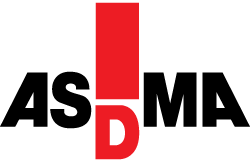It is especially at times of extreme crisis that coming together for mutual support becomes especially important. All those who work in specialist fire doors are dependent on the sector.
Basic door manufacturing, supply and installation mutually depend on each other, and on an extended network of component and raw material supply from supporting manufacturers and distributors, not forgetting technical experts, test organisations and providers of certification schemes originally stimulated and developed with manufacturers. All are part of a coherent connected industry sector. And all depend on the viability of the sector as a whole.
Fire door manufacturing, like other product manufacturing for construction, now faces a crisis like no other from the impact of COVID-19. Demand has substantially collapsed and is not likely to come back to any major degree for some time.
The times are unprecedented. There is accordingly sincere concern about both short-term continuity and what could follow from longer-term economic deep-seated damage. At some point there will be a return to some form of normality. It will be a new normality. That realisation should reinforce a natural sector requirement, for those in the sector, to work together for the future of the sector.
ASDMA is therefore calling for the sector to come together through its representative associations.
Keeping in touch with dialogue for common understanding, exchanging experiences and observations, is important during this crisis. That’s especially through trade associations and between associations along the chain, so that the sector can better come out the other side of the crisis still as a sector for the UK, in as good a condition as can possibly be the case despite the stresses that applies to everybody.
It is especially important in these unprecedented times to avoid excessive imposed costs and other consequential restrictions when the sector is under such a set of abnormal stresses. That should be understood, instinctively. Processes that are well established during normal times – such as certification audits, for example – may well not be as appropriate and applicable as they are in normal times. Clearly, audits cannot be representative where plant is idle, when demand is close to zero, when visual inspections have to be attempted from a distance away, and where minimum production levels are being maintained for essential work on just skeleton staffing levels. First let’s get back to some form of normality.


